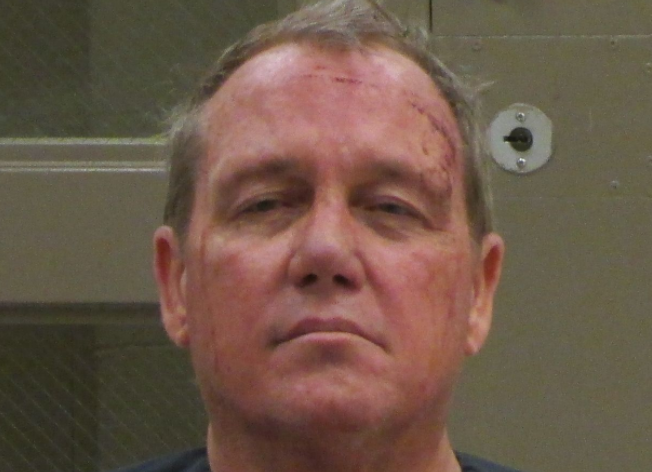The Christmas Eve slaying of former professional baseball player John David Barfield was reckless but not deliberate, a Pulaski County jury concluded on Thursday, convicting his killer of manslaughter after about 10 hours of deliberations.
The six women and six men rejected both the first-degree murder charge filed by prosecutors and claims by William Lee "Bill" Goodman of Pine Bluff that he was protecting himself when he fatally shot the 52-year-old Barfield twice in the chest during a struggle on the former Texas Ranger's backdoor step.
The panel took only about 30 minutes to agree to impose the maximum penalty, 25 years in prison and a $10,000 fine. First-degree murder carries a 10-year minimum with a life sentence possible while second-degree murder, when committed with a gun, ranges from six to 45 years.
Goodman claimed he had to shoot Barfield twice to save himself, telling jurors the pitcher had ambushed him on the raised landing behind Barfield's apartment and subjected him to a life-or-death struggle.
[HOMICIDE MAP: Interactive map of killings in Little Rock in 2016]>
Defense attorney Matt McKay called on jurors to acquit Goodman, saying the 60-year-old man had been blindsided by the younger and "substantially stronger, substantially larger" Barfield who was both enraged and high on methamphetamine.
"[Goodman] didn't go over there to kill anybody," McKay said. "He was slugged in the face by a left-handed professional pitcher. Of course, he feared for his life. He had no choice but to use the gun he always carries."
McKay repeatedly emphasized Barfield's former baseball career in his final remarks to jurors, saying the pitcher was more than a match physically for his client, a former Marine who said circulatory illness and the effects of cancer treatment require him to rely on a wheelchair. Goodman fell out of his wheelchair during prosecution closing arguments.
McKay urged jurors to accept the assessment of the altercation Goodman's son, the only witness to the shooting, offered to police, that his father had acted in self-defense. Trent Goodman may have tried to back off from that description during the trial, but that's because he's been under the influence of his mother since the slaying, McKay said.
The text messages that Goodman sent his wife about killing Barfield just before Goodman showed up at the couple's apartment were not proof that Goodman wanted to kill Barfield, just "regrettable" emotional outbursts from a man upset at the dissolution of his 20-year marriage, McKay told jurors.
Deputy prosecutor Tonia Acker read a text to jurors in her closing arguments, saying Goodman announced his intentions then followed through with them.
"If he moves, I'll kill him," she said quoting the message. "And then [Goodman] did. And then he ran and then he lied."
Goodman and his son had driven from Pine Bluff to Barfield's North Sherman Street apartment to pick up a child support check and some Christmas presents.
Acker asked jurors to consider why Goodman was even at Barfield's house. The men had quarreled by text message the day before the shooting, and Goodman told jurors he believed his estranged wife was goading Barfield into eventually attacking him.
"He is at his own back door on Christmas Eve and this defendant took the fight to him. [Goodman] did not even have to get out of the car," she said. "This defendant was so scared he ran up stairs in the dark to get at him."
After shooting Barfield, Goodman left before police arrived, didn't tell anyone he had shot a man and somehow lost the gun he had used, she reminded jurors. Acker also scoffed at the defense's repeated references to Barfield as an athlete and former professional baseball player, noting that those successes were decades in the past for the victim.
She also asked jurors to consider Trent Goodman's description of the fight, how he had compared the men's struggle to a slap fight between children. If Bill Goodman was protecting himself, why did his son call out for him to stop what he was doing and why did the boy feel the need to take the gun away from his father, Acker asked.
"He tells his dad to stop," she said. "The 17-year-old has to go over to his dad ... and disarm him."
About three hours of jury deliberations Thursday were devoted to listening to the testimony of the defendant, his estranged wife, Mystic Goodman, and Trent Goodman from the recordings of the court reporter. Bill and Mystic Goodman testified Wednesday while Trent Goodman testified Tuesday.
Metro on 08/11/2017


